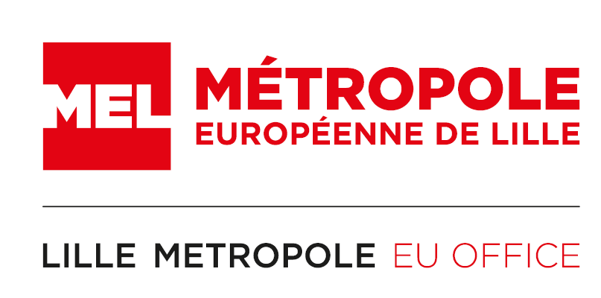
Lille Metropole covers more than 67,700 hectares, of which around 45% is devoted to agriculture. This makes it one of France's largest urban agricultural areas, facing complex challenges such as climate change, limited natural resources and economic crises.
A Legacy of Industrialization
For years, Lille Metropole has been grappling with a significant issue rooted in its industrial past. For decades, the region was a hub of industrial activity—particularly in highly polluting sectors such as the textiles industry. As a result, soil pollution has become a major obstacle not only to urban renewal projects, but also to the urban agriculture projects that are being developed to reintroduce the function of food into cities. Faced with this major challenge, Lille Metropole is developing solutions to restore soil functions that are useful for urban agriculture and, by extension, traditional farming.
In addition, the territory is marked by a duality in land use: while 45% is used for farming, the remaining 55% supports a population of 1.2 million. This sometimes creates tensions between urban development and rural preservation, especially as more people express interest in living in or near green, agricultural spaces.
Despite these challenges, Lille Metropole is actively working to support the transformation of its agricultural and food systems through a forward-looking global strategy.
A closer look at Lille Metropole's agricultural strategy
Over the past decade, Lille Metropole has been deeply committed to promoting environmentally friendly practices, supporting local municipalities and farmers, and fostering a more resilient food system. By 2025, a total of 1.2 million euros will have been invested to further transform the region's agricultural landscape. One of the flagship initiatives of this strategy is the vegetable processing plant project. This program aims to boost local vegetable and fruit production, reduce transportation needs, and minimize food waste. It is structured around four key objectives:
Supporting and promoting local agriculture
Ensuring access to healthy, locally sourced food
Encouraging sustainable agricultural models
Streamlining public food procurement and catering supply chains
Additional measures have also been taken to preserve natural resources such as water, air and biodiversity. Financial support has been introduced to help young farmers set up their business. This initiative not only promotes employment, but also aims to preserve agricultural activity in the region.
The strategy also includes technical and engineering support, for example for agroforestry projects. Over the years, sustainable agricultural practices have gained ground, and Lille Metropole plans to continue developing its activities in the field of agriculture.
Strengthening Food Sovereignty
The vegetable processing plant initiative also addresses a broader issue: food sovereignty. How can the territory produce enough food to meet the needs of its population?
At present, the metropolitan area exports around 11.7 million tons of agricultural produce a year and imports around 9.7 million tons. One of the aims of the strategy is to reduce this dependence by increasing local consumption.
A Strategy with European Dimensions
Lille Metropole's agricultural and food strategy is also aligned with key european policies and programs, which emphasizes short supply chains and sustainable food systems. A concrete example of this is the vegetable processing plant, which aims to provide healthy, locally-produced food while reducing transport and carbon emissions.
Agro-ecological initiatives also contribute to these objectives by promoting practices that reduce carbon emissions. In addition, the work carried out on soil restoration could enable Lille Metropole to benefit from European funding. Indeed, improving soil quality is another major objective linked to the EU Soil Mission. Efforts are focused on assessing soil quality, identifying restoration solutions and using innovative tools such as land commons analysis and ecological accounting to measure the creation of environmental, social and societal value.
While this strategy is tailored to the specific challenges facing Lille Metropole, it could serve as a valuable model for other urban areas seeking to strengthen their own agricultural systems. In fact, many of the ideas developed in Lille Metropole are already being shared through European working groups and with other French cities such as Nantes, Lyon, and Montpellier.

